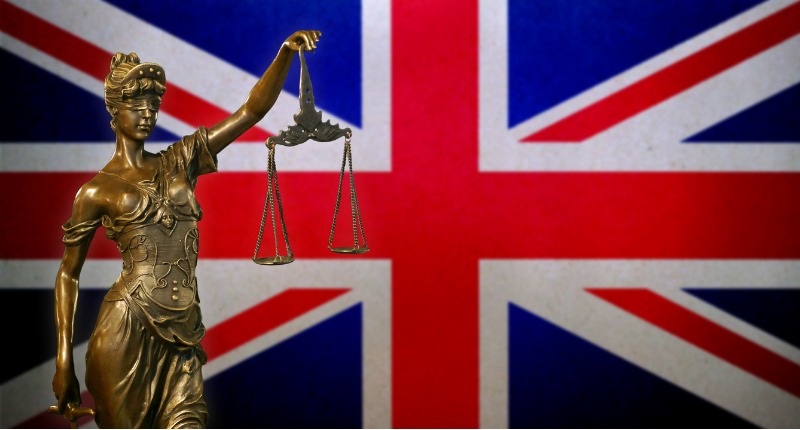Brits are well known for their humor. But what happens when you find some of it in officially written legislation — ridiculous rules bound by law not to break them?
Well, British journalist Oobah Butler took it upon himself to break some of those weird laws — and he got away penalty-free. Among other things, he beat a doormat after 8 am, an act not allowed on the streets since 1839, and he also walked around the city with a dead fish clutched in his hand, Vice Magazine reports.
While some of this legislation may have made sense on the day it was passed in parliament, today these laws feel more like the subject of a good laugh. A few of those listed below sound like they could be true, considering some of the real laws, but are in fact widely-believed urban legends.
Carrying a plank on the pavement
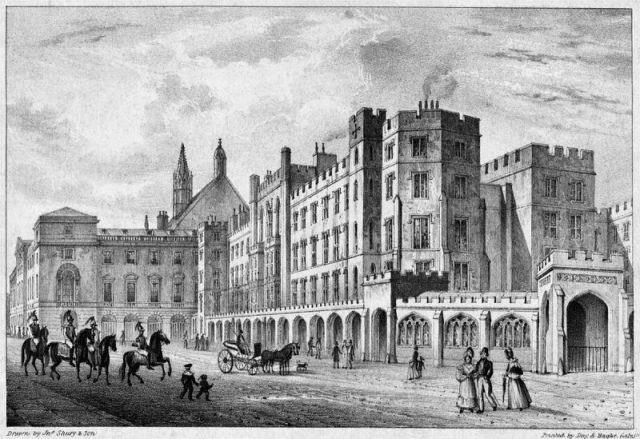
You are allowed to unpack a plank from your vehicle, but you better have a good explanation if you plan to carry one while walking down the pavement (sidewalk) anywhere in London. Section 54 of the Metropolitan Police Act not only bans you from carrying a plank on the pavement but also a bunch of other stuff such as hoops, ladders, and wheels. Originally introduced in the 19th century, this law was aimed to restrict annoyance in the public and allow the easier passage of pedestrians.
Singing any profane, indecent, or obscene song or ballad
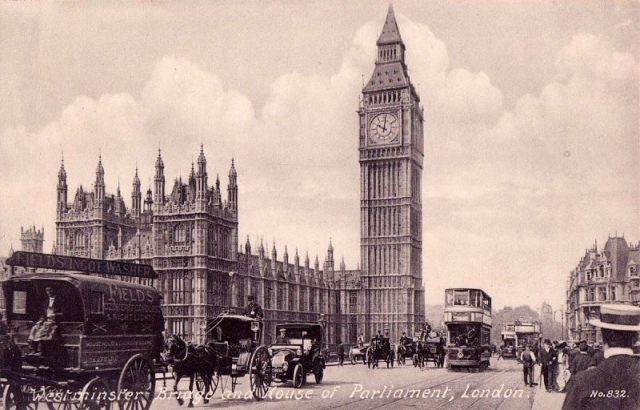
There are a number of ways to disturb the public and end up in trouble with authorities, such as flying a kite or singing not the right song. The Metropolitan Police Act of 1839 also states that a person is not allowed to “sing any profane, indecent, or obscene song or ballad, or use any profane, indecent or obscene language to the annoyance of the inhabitants or passengers.” Perhaps this is one section that should be enforced more rigorously today.
No obscene language when in the library and no gambling

As the UK’s Libraries Offences Act 1898 dictates, there ought to be consequences for any person who “behaves in a disorderly manner” when in a library or reading-room. Usage of “violent, abusive, or obscene language” is one of the possible offenses under this act, and gambling falls under behaving in a “disorderly manner.” Punishment may also befall the library-goer who “after proper warning, persists in remaining therein beyond the hours fixed for the closing of such library or reading-room.”
Handling a salmon in suspicious circumstances

While a law from 1986 to prevent the sale of illegally caught fish (Section 32 of the Salmon Act, titled “Handling Salmon in Suspicious Circumstances”) may have had good intentions, the wording tosses it deep into weird waters.
“A five-hour House of Lords debate about the issue in February 1986 decided the wording would protect unwitting people from the then-in-place wider law of ‘possessing salmon which have been illegally taken, killed or landed,’” according to the BBC. However, written the way it is it indeed gives the impression that people walking around holding a suspicious-looking piece of salmon in their hand is a common sight.
Related Video: Victorian Slang Everyone Should Know
https://youtu.be/utw0IVJcGK0
Whales and sturgeons belong to the Queen
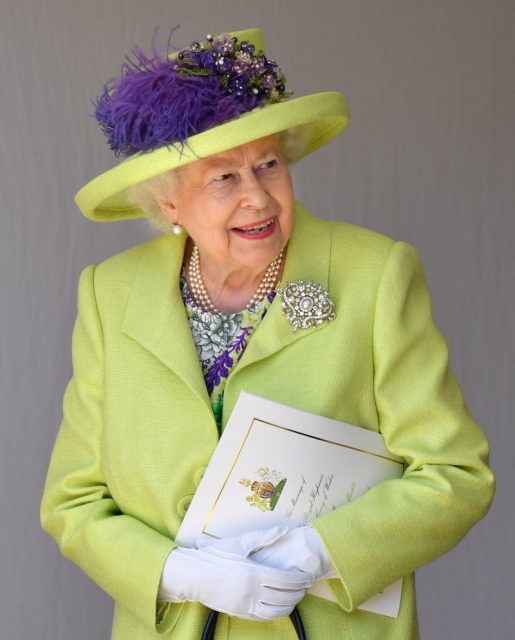
There is much legal enforcement associated with fish in the UK. For example, whales and sturgeons are considered to be royal fish, thus any caught in UK waters are immediately consigned on behalf of the current reigning monarch of the nation, in this case, Queen Elizabeth II.
Ownership of all whales, sturgeons and dolphins has been part of the royal prerogative ever since the reign of King Edward II, who sat on the throne some seven centuries ago.
Importing Polish potatoes might be a problem

Not only the fish could be suspicious in your typical British dish of fish and chips, but also the chips themselves. Especially if the potatoes come from Poland. Unless certain things are done ahead of the import.

Before importing Polish potatoes into the United Kingdom, you need to provide authorities with a number of details. These include the border entry point, date and time of proposed entry, details of the means of transport, how many and where they will be taken. Also, not to forget the variety of the potato, the ID number of the person who grew them, and a ring rot certificate proving the potatoes are not diseased. The Polish Potato Order 2004 came into force after Polish potato crops suffered from a series of outbreaks of ring rot disease.
Don’t let down the Queen. Not even on postage stamps.
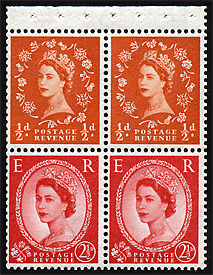
According to Britannica.com, treason is defined as “the crime of betraying a nation or a sovereign by acts considered dangerous to security.”
The case might be that treason is also putting a postage stamp with the face of the Queen upside down on the letter. Luckily, letters are going out of fashion these days. And luckily again, this aspect of the law is just one of the legal myths flying around.
This postage stamp violation has been somehow associated with the Treason Felony Act 1848, which considers anything that could be interpreted as treason an offense, particularly acts to depose the monarch — although no mention of placing stamps upside down is mentioned within the Act.
A common pet dog is not allowed to mate with royal breeds

Queen Elizabeth II is a world-famous devotee of dogs, in particular her very own royal lineage of Pembroke Welsh Corgi. However, if you happen to randomly stumble upon her while walking your own dog (which is kind of hard to imagine) watch out! Word has it a common pet dog is not allowed to get too friendly with a royal breed.
While there are several weird laws associated with members of the royal family, this one is not true. Although a commoner could be prosecuted under the (now repealed) Criminal Law Act 1722 for killing a deer in the royal forests.
Suits of armor not allowed in Parliament
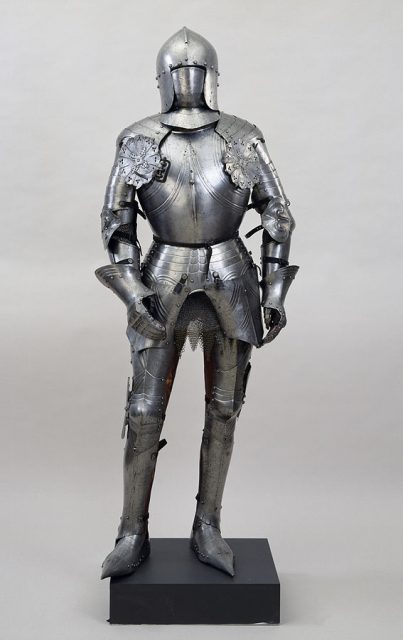
Under the Statute forbidding Bearing of Armour 1313, no person is permitted to enter the House wearing a suit of armor. Not that today’s MPs are likely to keep such an outfit in their wardrobe and wonder in the morning if that should be their choice for the day.
However, the statute was enacted during the reign of Edward II, in times of considerable political instability in England. In it, the King indeed insists “that in all Parliaments, Treaties and other Assemblies, which should be made in the Realm of England for ever, that every Man shall come without all Force and Armour.”
It is supported by The Statute of Northampton 1328, which prevents any person “except the king’s servants in his presence, and his ministers in executing of the king’s precepts, or of their office” from carrying weapons in public.
Carrying at least one bale of hay in your vehicle was mandatory
Last but not least, in the old days, city transport depended on horse-drawn carriages. A bale of hay always at the disposal of the driver could have indeed helped the horse. Some believe this was mandatory by law, although this one is also an urban myth.
Read another story from us: 2,000-year-old Fast Food bar discovered in Pompeii
According to the London Hackney Carriage Act 1831, it was an offense for drivers to feed their horses in the street — unless they did so from a special corn bag or offered the hay to the animal from their own hands. Both ways, it’s weird.
